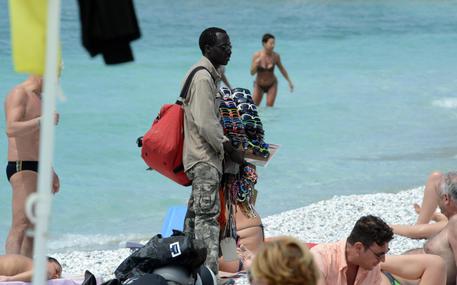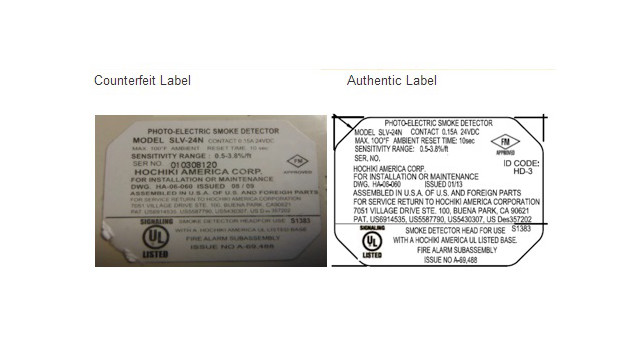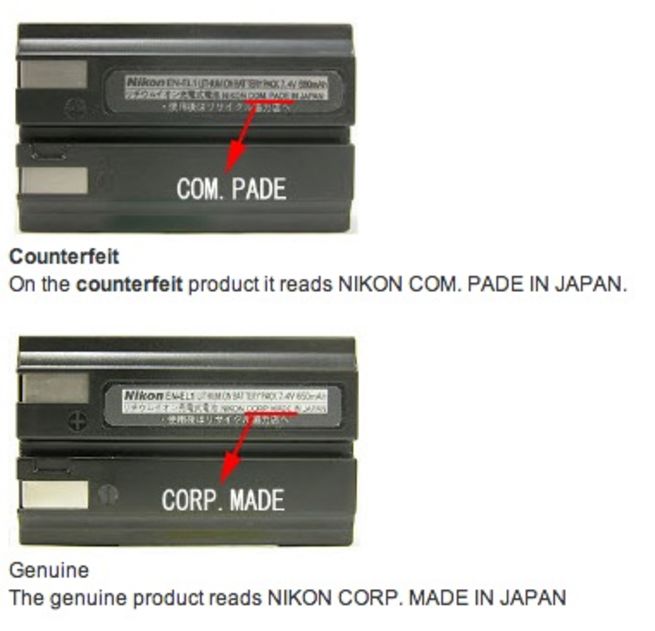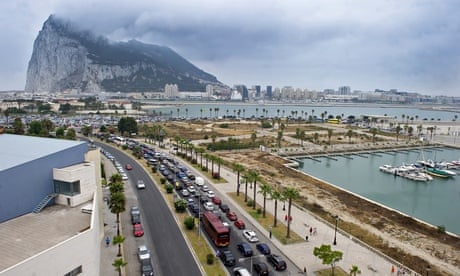
Alfano praises anti-counterfeiting police raid in Naples
Interior Minister Angelino Alfano on Wednesday praised an operation in which police seized as many as 120,000 fake items from Naples-area workshops operated by 11 suspects allegedly linked to the powerful and vicious Camorra mafia organization. As well, police in Venice fined 13 Senegalese and Bangladeshi street vendors, all of whom were legal residents in Italy, for selling knock-offs. They also seized 100 fake designer bags, 400 toys, and 30 camera tripods. “Dismantling this kind of network means protecting our products, fighting counterfeiting, guaranteeing Italians peaceful days at the beach, and siphoning off vital sap from the illicit market,” the minister said. The interior minister sparked controversy on Monday when he called for a crackdown on street vendors, most of whom are Indian and African, using the derogatory term “vuccumpra'” to describe them.
Lear MoreChina Product Counterfeiting: Using UDRP To Shut Down The Website
Our law firm has in the last year had probably twice as many counterfeit matters as in any prior year. Not sure if this is because counterfeiting is on the increase or if it is just because American companies are getting so sick of it that they are becoming more likely to take action. Most of these matters involve Chinese companies shipping counterfeit product into the United States.
There are all sorts of ways to try to shut down Chinese counterfeiters but today’s post focuses on only one of those: trying to shut down the counterfeiter’s domain name. In a subsequent post we will talk about using a Section 337 action before the International Trade Commission.
Lear More
Warning issued over smoke detector bearing counterfeit UL mark
Underwriters Laboratories (UL) last week issued a warning regarding a Hochiki SLV-24N model smoke detector that has been discovered bearing a counterfeit UL mark.
The full statement from UL can be found below:
The following is a notification from UL that a Hochiki SLV-24N Smoke Detector bears a counterfeit UL Mark for the United States. The SLV-24N Smoke Detector has not been evaluated by UL to the appropriate Standards for Safety, and it is unknown if this Smoke Detector complies with any safety requirements.
Lear MoreRichard Marianos: Route 95 is the new Tobacco Road for cigarette smugglers
Rhode Island Gov. Lincoln Chafee and the General Assembly recently wrote a tough game plan to fight the explosion of tobacco smuggling under way along Route 95, “The New Tobacco Road,” a problem that is robbing taxpayers and the state of millions of dollars and stretching far beyond the borders of the Ocean State. This tougher new stance comes on the heels of a major state and federal breakup of a Providence-based smuggling ring responsible for $1.2 million worth of contraband cigarettes and a Rhode Island tax loss from this group alone of over $1 million, real money that could have been used for schools, roads or other vital programs. This criminal enterprise was not a mom-and-pop operation, but a sophisticated scam to move cheaper cigarettes from Virginia to Rhode Island for sale at huge profits. One smuggler donned his U.S. Army uniform and drove his contraband loaded truck with Rhode Island Veterans plates to conceal the crime and attempt to curry favor with law enforcement.
Lear MoreVenezuela seals Colombian border to fight smuggling
Venezuela closed its border with Colombia Monday night to fight the smuggling of cut-rate gasoline and other products that has caused huge losses for the government and exacerbated severe shortages. Oil-rich Venezuela has the world’s cheapest gas, as well as price controls that keep goods like rice and toilet paper up to 10 times cheaper than in Colombia. But Venezuela has also been hit by crippling shortages of basic supplies and rampant inflation, even as the outward flood of local products has become a defining feature of the regional economy. To combat the problem, the Venezuelan government has deployed 17,000 troops to seal the 2,200-kilometer (1,400-mile) border off every night from 10:00 pm to 5:00 am.
http://www.jamaicaobserver.com/news/Venezuela-seals-Colombian-border-to-fight-smuggling
Lear MoreVenezuela seals border with Colombia to fight smuggling
San Cristobal: Venezuela closed its border with Colombia Monday night to crack down on smuggling of cut-rate gasoline and other products and stanch huge losses for the Caracas government. A total of 17,000 troops have been posted along the frontier to prevent Venezuelan gas and other products kept cheap thanks to government price controls from being sneaked across the border into Colombia. The closing along 2,200 kilometers (1,400 miles) of border applies only at night. It will last 30 days during a preliminary period and then the effect of the measure will be assessed. The lure for smugglers is acute: gas is so cheap in Venezuela it costs less to fill up your tank than it does to buy a bottle of water.
Lear More
Nikon Warns About The Dangers of Counterfeit Batteries
Counterfeit batteries are a real issue to manufacturers, with anonymous third parties passing them off as the real thing. Completely separate from 3rd party alternatives, someone may get saddled with a fake thinking they’re buying a genuine article, only to find sub-par performance (or worse, if it causes damage). But would you be able to tell if your battery is the real deal or not? Nikon’s website has examples of 10 of the company’s batteries, and the various way’s they’re mimicked. The problem is, no one sets out to buy a counterfeit battery. If you’re buying a 3rd party battery, then that’s your choice (though many manufacturers aren’t big fans of that, either). But if you end up with a fake Nikon battery, it’s because you’re attempting to buy a real one, and end up with a forgery. And the only way to tell is to compare it to the real deal. According to Canon, 18% of consumers unwittingly bought forgeries last year.
http://www.popphoto.com/gear/2014/08/nikon-warns-about-dangers-counterfeit-batteries
Lear More

EU calls for crackdown on tobacco smuggling between Spain and Gibraltar
The EU is calling on Spain and Gibraltar to crack down on tobacco smuggling across the border between the two countries, citing concerns about the involvement of organised crime. Wrapping up a one-year investigation, the European Anti-Fraud Office (Olaf) said in a statement that it had “raised a number of concerns” to UK and Spanish officials regarding its investigation into the increase of cigarette smuggling across the frontier. While the report was not made public, Olaf noted “a significant increase in the size of the Gibraltar market for cigarettes over the past four years” and that “the concerns include indications of the involvement of organised crime”.
http://www.theguardian.com/world/2014/aug/11/eu-crackdown-tobacco-smuggling-spain-gibraltar
Lear MoreTobacco Smuggling in Greece: an Overview
Over the past decade, contraband tobacco sales and facilitation of transnational tobacco smuggling in Greece have flourished, due to a combination of factors. Although not considered as a particularly ‘sexy’ sector of organized crime, compared to narcotics or arms dealing, tobacco smuggling still represents a threat to state security, in that it empowers organized crime rings engaged in multi-level activities, and drains the state coffers of considerable tax revenue. The substantial increase in taxation which made one of Greeks’ favorite pastime, smoking, an expensive hobby is the primary factor behind the increase of a contraband market.
Over the past decade, contraband tobacco sales and facilitation of transnational tobacco smuggling in Greece have flourished, due to a combination of factors. Although not considered as a particularly ‘sexy’ sector of organized crime, compared to narcotics or arms dealing, tobacco smuggling still represents a threat to state security, in that it empowers organized crime rings engaged in multi-level activities, and drains the state coffers of considerable tax revenue. The substantial increase in taxation which made one of Greeks’ favorite pastime, smoking, an expensive hobby is the primary factor behind the increase of a contraband market.
http://www.balkanalysis.com/greece/2014/08/11/tobacco-smuggling-in-greece-an-overview/
Lear More
Combating counterfeiters could soon be as easy as breathing
Researchers at the University of Michigan have developed an iridescent material that reveals hidden words or images in the right setting. What exactly causes the message to show? A single breath. That’s right, breathing on the plastic sheets makes whatever has been inscribed on it visible — thanks to a little instant humidity — but otherwise hidden from view. Images are created using a custom ink-jet printer to output a water-repellant coating in the desired shape. When breathed on, water condenses to show the image — similar to the manner in which a peacock’s feathers lose their glimmer when they’re wet.
http://www.engadget.com/2014/08/08/counterfeit-detection-by-breathing/
Lear More


